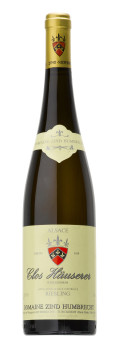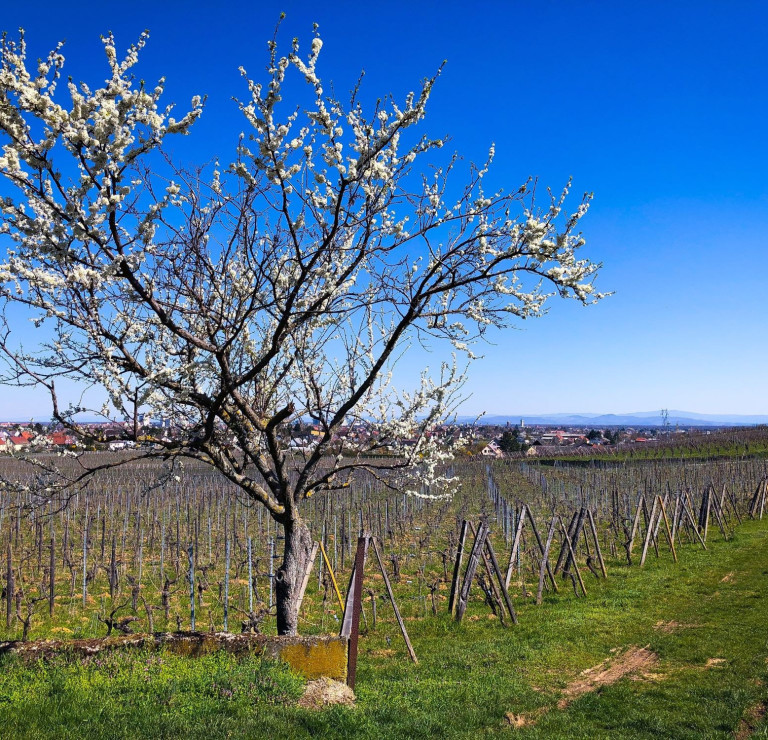
Technical presentation
| Bottling : | February 2017 |
|---|---|
| Acquired alcohol : | 13.0 ° |
| Residual sugar : | 18.0 g/l |
| Total acidity : | 4.8 g/l H2SO4 (7.3 g/l Acide Tartrique) |
| pH : | 2.93 |
| Yield : | 37 hl/ha |
| Optimum tasting : | 2018-2035+ |
| Average age of vines : | Vineyard planted in 1973 |
| Grape variety : | Riesling |
| Terroir : | Clos Hauserer |
| Sweetness index : | 3 |
| Soil : | Calcareous Marl from the Oligocene period, Coluvium slope, East facing, Very gentle slope |
Description of the wine Riesling Clos Häuserer 2015
The small Clos Häuserer (1.198ha) is located right on the bottom of the Grand Cru Hengst. It has a gentle east facing and is very well protected from westerly and northerly winds. It can therefore be very cold in winter (and sensitive to frost), but heat can also accumulate in summer in this little protected bowl. The rich marl soil is very deep (up to 1.5m) before reaching the Oligocene limestone mother rock. Clos Häuserer was a complicated vineyard it its youth, often over vigorous, but now that the roots are much deeper, it has become a very consistent and satisfactory vineyard to cultivate. Despite the precocious climate, the soil warms up very slowly which explain the late ripening style of the wines that always boast one of the highest acidity/low pH of the domaine. This in turn explains the very slow fermentation and the natural sweeter style of this wine in the rich vintages like 2015.

Tasting notes
08/2017 : Intense yellow gold colour. Expressive ripe fruity nose. The grapes were very healthy, but the aromatic profile (exotic fruits, white fruits, citrus…) would wrongly suggest some botrytis. In fact, the Clos Häuserer shows more the concentration of the vintage and the high physiological ripeness of the grapes. The palate is very elegant and delicate. The light perceivable sweetness is perfectly controlled and dominated by a racy acidity. Indice 3 will almost seem exaggerated for some people, especially after a few years of age. Glorious wine, definitely made for long keeping.

The Clos Häuserer of Wintzenheim
This soil rich in clay and chalk gives an important structure to the Riesling grown in the Clos Haüserer. Although this vineyard benefits from a warm and precocious climate, ripeness is achieved much later than the surrounding terroirs.